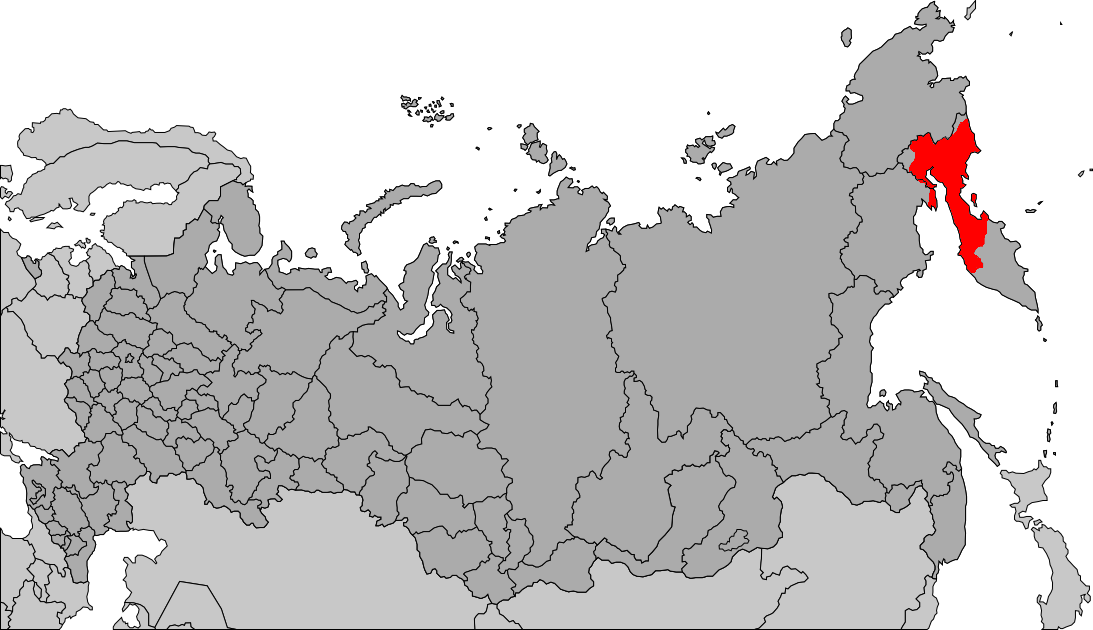|
Apuka
The Apuka are one of the nine subdivisions of the Koryaks. In pre-Soviet Russia they were considered to be a distinct people. They speak their own dialect of the Koryak language. They live primarily along the coast of the Bering Sea The Bering Sea (, ; rus, Бе́рингово мо́ре, r=Béringovo móre) is a marginal sea of the Northern Pacific Ocean. It forms, along with the Bering Strait, the divide between the two largest landmasses on Earth: Eurasia and The Ameri .... Sources * Wixman, Ronald. ''The Peoples of the USSR: An Ethnographic Handbook''. (Armonk, New York: M. E. Sharpe, Inc, 1984) p. 12 * Olson, James S., ''An Ethnohistorical Dictionary of the Russian and Soviet Empires''. (Westport: Greenwood Press, 1994) p. 37 References External links Endangered Languages of Siberia - The Koryak language {{authority control Ethnic groups in Russia ... [...More Info...] [...Related Items...] OR: [Wikipedia] [Google] [Baidu] |
Koryaks
Koryaks () are an indigenous people of the Russian Far East, who live immediately north of the Kamchatka Peninsula in Kamchatka Krai and inhabit the coastlands of the Bering Sea. The cultural borders of the Koryaks include Tigilsk in the south and the Anadyr basin in the north. The Koryaks are culturally similar to the Chukchis of extreme northeast Siberia. The Koryak language and Alutor (which is often regarded as a dialect of Koryak), are linguistically close to the Chukchi language. All of these languages are members of the Chukotko-Kamchatkan language family. They are more distantly related to the Itelmens on the Kamchatka Peninsula. All of these peoples and other, unrelated minorities in and around Kamchatka are known collectively as Kamchadals. Neighbors of the Koryaks include the Evens to the west, the Alutor to the south (on the isthmus of Kamchatka Peninsula), the Kerek to the east, and the Chukchi to the northeast. The Koryak are typically split into two groups ... [...More Info...] [...Related Items...] OR: [Wikipedia] [Google] [Baidu] |
Koryak Language
Koryak () is a Chukotko-Kamchatkan language spoken by about 1,700 people as of 2010 in the easternmost extremity of Siberia, mainly in Koryak Okrug. It is mostly spoken by Koryaks. Its close relative, the Chukchi language, is spoken by about three times that number. The language together with Chukchi, Kerek, Alutor and Itelmen forms the Chukotko-Kamchatkan language family. Its native name in Koryak is нымылан ''nymylan'', but variants of the Russian "Koryak" name are most commonly used in English and other languages. The Chukchi and Koryaks form a cultural unit with an economy based on reindeer herding and both have autonomy within the Russian Federation. Phonology may be an allophone In phonology, an allophone (; from the Greek , , 'other' and , , 'voice, sound') is a set of multiple possible spoken soundsor ''phones''or signs used to pronounce a single phoneme in a particular language. For example, in English, (as in ''s ... of .Zhukova, 1972 Koryak alpha ... [...More Info...] [...Related Items...] OR: [Wikipedia] [Google] [Baidu] |
Bering Sea
The Bering Sea (, ; rus, Бе́рингово мо́ре, r=Béringovo móre) is a marginal sea of the Northern Pacific Ocean. It forms, along with the Bering Strait, the divide between the two largest landmasses on Earth: Eurasia and The Americas. It comprises a deep water basin, which then rises through a narrow slope into the shallower water above the continental shelf, continental shelves. The Bering Sea is named for Vitus Bering, a Denmark, Danish navigator in Russian service, who, in 1728, was the first European to systematically explore it, sailing from the Pacific Ocean northward to the Arctic Ocean. The Bering Sea is separated from the Gulf of Alaska by the Alaska Peninsula. It covers over and is bordered on the east and northeast by Alaska, on the west by the Russian Far East and the Kamchatka Peninsula, on the south by the Alaska Peninsula and the Aleutian Islands and on the far north by the Bering Strait, which connects the Bering Sea to the Arctic Ocean's Chukchi ... [...More Info...] [...Related Items...] OR: [Wikipedia] [Google] [Baidu] |

